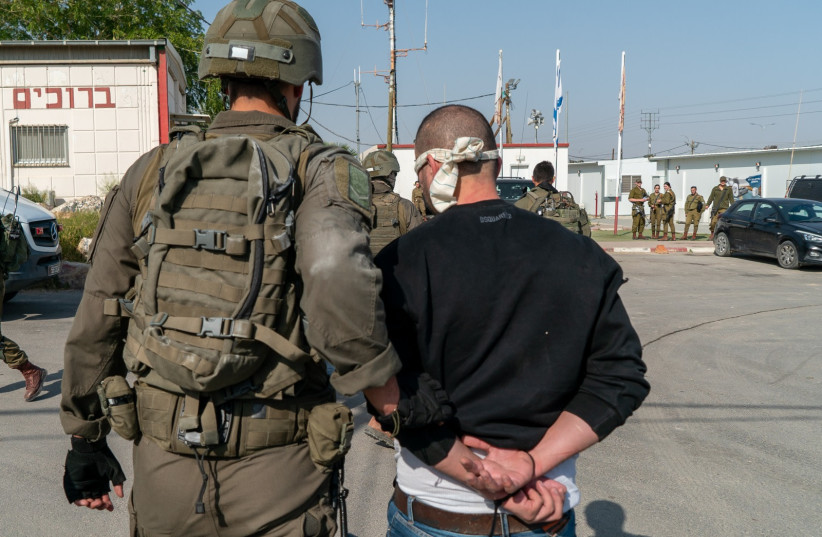Prime Minister Benjamin Netanyahu will convene a "special meeting" to discuss integration of the Shin Bet into the struggle against rising crime in Israel's Arab sector, the prime minister said at the start of the cabinet's weekly meeting on Sunday morning.
"We are determined to fight this criminal phenomenon, and at the head of the snake – the criminal organizations," the prime minister said, adding that he would convene the meeting to "integrate the Shin Bet in the targeted efforts against the crime families."
"I insist on immediately bringing in the Shin Bet," he added.
What is the role of the Shin Bet in Israel?

The Shin Bet is Israel's primary security agency in collecting information and targeting terrorists in the West Bank and Gaza.
The agency became involved in crime within Israel already during the previous government, in cases that bordered on terror. However, the agency itself opposes getting deeper involved in violent crime within Israel.
The prime minister's remarks came after a bloody week that raised the total homicides in the Arab sector to 102 since the beginning of 2023, compared to 106 homicides in the sector in all of 2022.
The homicides in 2022 were less than the 121 homicides in the Arab sector in 2021. The drop occurred after the previous government launched an operation called "Safe Track" in 2021, which brought together all branches of law enforcement in a cross-ministry coordinated move led by former deputy internal security minister and current opposition MK, Yoav Segalovitz (Yesh Atid).
Segalovitz argued on Channel 12's "Meet the Press" on Saturday that the current government had not continued the operation, and that all of the plans were laid out and available – and all National Security Minister Itamar Ben-Gvir needed to do was implement them.
Ben-Gvir spoke to the press ahead of the weekly cabinet meeting.
"From the first moment of [coalition] negotiations I said: The police's blanket is small, the Shin Bet needs to enter the fray after everything that has happened in recent months," he said.
"Yes, there is [NIS] 9 billion [in budget increase for the police]; yes, there will be raises for police officers. All of the people who are clicking their tongue who run an ongoing campaign against me – it will not help them. It is obvious why they are doing it – they do not want Ben-Gvir.
"But, in order to provide an immediate solution, I demand that the Shin Bet enter the picture. There is no time and no need to wait. In a few months, with God's help, we are working on raising salaries for police officers, on the National Guard, but besides these additions, besides all of the plans and everything we are doing in this ministry that has not been done before, we must right now have the Shin Bet act," Ben-Gvir said.
The leaders of the National Unity opposition party, MKs Benny Gantz, Gideon Sa'ar and Gadi Eisenkot, visited on Sunday the city Qalansawe, east of Netanya.
Gantz called the situation a "nation state of emergency" and called for the immediate formation of a ministerial cabinet to fight organized crime.
"The last thing that can be said about Netanyahu is that he is determined to treat the plague of violence. There are no magical solutions – the violence will only stop when Netanyahu treats governance in [the Arab town] Tur'an the same way he treats preparation for [attacking] Tehran. That the law for Rosh Ha'ayin is the same as Qalansawe," Gantz said.
Gantz also called on Netanyahu to fire Ben-Gvir.
"The internal security ministry needs a minister with experience in action and not just public relations. A minister that knows how to work together with the police commissioner and top commanders, and not to give anonymous briefings against them or fire them in the media. A minister who can gain the trust of the population, and give it a sense of security – and not one who has been delegitimizing it for decades."
"Every day that the keys to internal security are in Ben-Gvir's hands is national neglect by the prime minister.
"The experiment failed, and the price is heavy," Gantz added.
